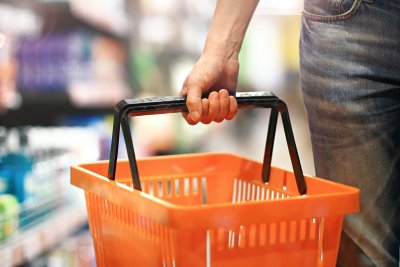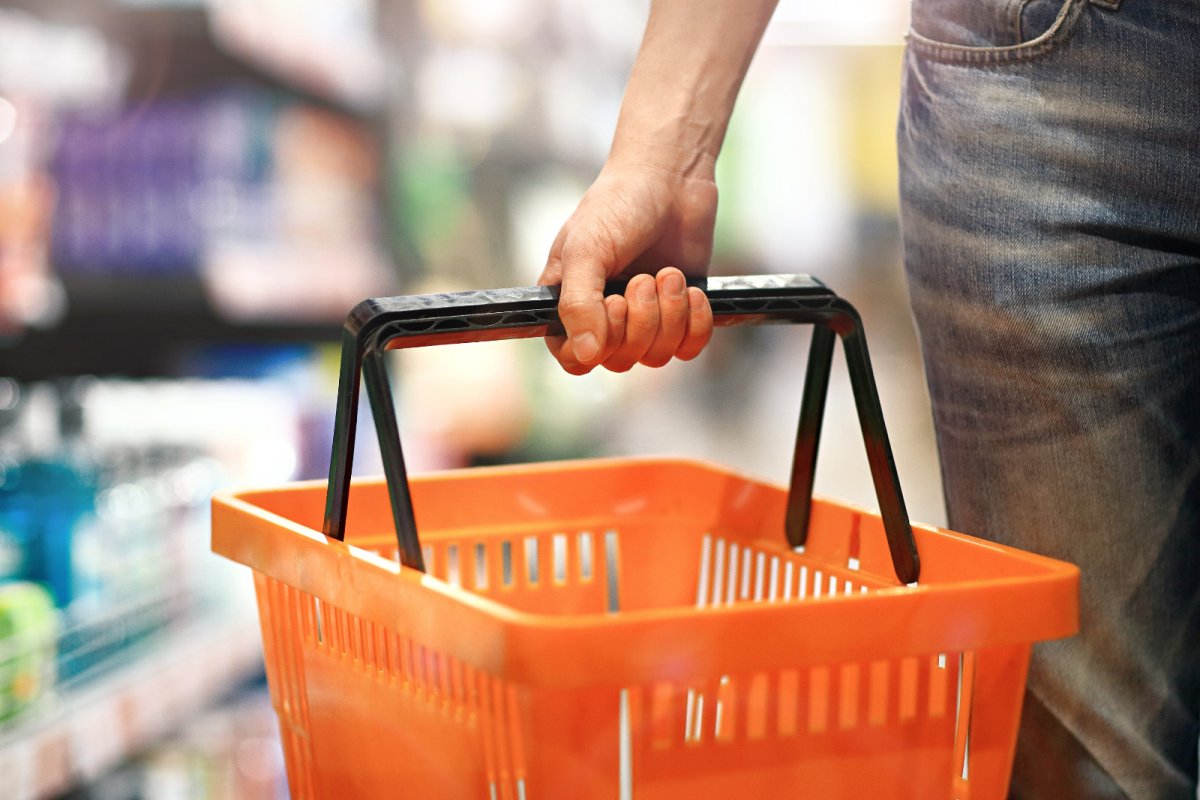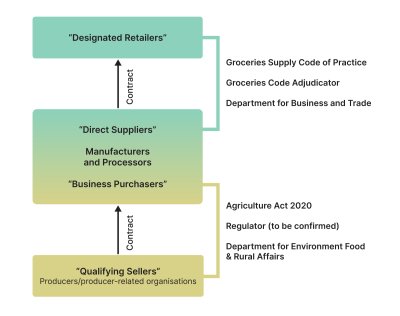 A person out of shot holds a shopping basket. Copyright: Mr.Music shutterstock
A person out of shot holds a shopping basket. Copyright: Mr.Music shutterstock

Help support British farmers: 5 things you need to know about unfair supermarket dealing
Sustain and Riverford are calling on the public to write to their MP, to join the call for better supply chain regulation. With farmers on the brink, here are five things you need to know.
Two years on from Riverford’s launch of the #GetFairAboutFarming campaign, farmers and growers in the UK are still being treated unfairly by supermarkets, with many forced to accept late payments and order cancellations without notice.
However, the campaign, supported by Sustain, has not fallen on deaf ears. Following a petition with over 110,000 signatures and more than 11,000 letters sent to MPs, parliamentarians from across the political spectrum have voiced their concern and amplified our calls for change. Thanks to this pressure, in June a proposal was put forward in parliament, calling for better regulation of the food supply chain. The Early Day Motion suggests bringing together the existing supply chain watchdogs – currently split across two government departments - into one stronger, more effective body to ensure fair treatment across the whole supply chain, from farms all the way to the biggest retailers at the top.
Help support British farmers and write to your MP
Read on for an explainer on the current regulation, why it’s not working for farmers, and how we can fix it.
1. What’s the problem?
UK farmers continue to face serious unfair treatment from big supermarkets, from cancelled orders and late payments to prices being forced down to unprofitable levels. This is hurting their businesses and their profitability, pushing them toward more environmentally damaging, intensive farming just to survive.
Research commissioned by Riverford in 2023 and 2024 has revealed farmers continue to experience unfair trading practices:
- 67% of farmers fear being delisted if they speak out against unfair dealing, because they are afraid of being delisted by supermarkets
- 75% of farmers say the behaviour of supermarkets is a leading concern within the industry
- 1 in 5 farmers (22%) said they suffered a wasted crop due to cancelled orders from supermarkets
- 29% received a cancelled order from supermarkets with no explanation
- Just under a third (29%) experienced supermarkets failing to pay them on time within 30 days.
Supply chain fairness was also identified as a key issue affecting farm profitability in Defra’s most recent Farmer Opinion Tracker (April 2025). Low profitability is not just bad news for agriculture. Farmers responding to the survey also spoke of “the need to ensure that nature friendly farming is encouraged through profitability”. Financial insecurity can drive intensification in farming practices for businesses to remain viable, which in turn destroys habitat and pollutes the environment.
2. What is the current regulation?
The food supply chain is currently overseen by two independent regulators, the Groceries Code Adjudicator (GCA) and the Agriculture Supply Chain Adjudicator (ASCA). The two regulators operate independently from one another and report to different government departments.

The GCA was set up in 2013 and reports to the Department for Business and Trade. It is responsible for overseeing relationships at the “top” of the supply chain, between the largest 14 retailers and their direct suppliers (who are often intermediary businesses – such as packagers and processors – rather than farmers themselves). The GCA is responsible for ensuring that retailers with a turnover of £1bn adhere to a code of good conduct with their suppliers, with is known as the Groceries Supply Code of Practice (GSCOP).
ASCA was set up following the Agriculture Act 2020 and reports to Defra. It oversees relationships between farmers and their direct buyers, which are usually the intermediary businesses that process and package food for supermarkets. If a farmer experiences unfair trading practices, and they don’t supply one of the largest 14 retailers directly, they must complain to ASCA. There is a separate code of conduct for different agricultural sectors – eggs, milk, pigs, etc. Only two of the codes have been published so far.
3. Why does the regulation need improving?
Supermarket supply chains are complex. Most farmers do not supply supermarkets directly, instead selling to processors and packagers, who then sell to supermarkets. When a supermarket delays a payment, or cancels an order at short notice, the costs fall on intermediaries, who then pass them onto farmers - causing huge financial losses and wasted crops.
As most farmers do not sell to supermarkets directly, they are not covered by the GCA and must complain to ASCA. However, many farmers are afraid of speaking out due to delisting, and ASCA guidance currently only exists for two sectors (milk and pigs).
Even if a complaint to ASCA were upheld, it's the intermediaries who will be penalised, not the supermarkets making the decisions.That's why Riverford and the Sustain alliance are calling for the GCA's remit to be expanded, to give it oversight across the whole supply chain - so that unfair dealing is addressed at the source and supermarkets are held accountable. Sustain's joint briefing provides further detail on our recommendations.
4. How can we fix it?
The solution is clear: we need a single, well-resourced regulator with the power to enforce fairness across the supply chain. Thanks to successful campaigning by Riverford and Sustain, MPs have tabled a proposal in parliament. The Early Day Motion (EDM) for “Farmers, growers and the supermarket supply chain” called for precisely the changes we're asking for. Some MPs have signed the EDM — but more are needed to make change happen. You can help by asking your MP to join the call to improve supply chain regulation to support farmers.
5. Why act now?
As you are reading this, the government is undertaking a review of the GCA and its effectiveness at regulation. Meanwhile, Defra has launched a Farm Profitability Review, to investigate how to improve the financial viability of farm businesses. Following a year of unexpected policy u-turns and extreme weather due to climate change, farms are increasingly concerned about their finances. These problems have not fallen on deaf ears - we've built significant political momentum, with dozens of MPs speaking out against unfair trading practices in recent months.
Now is a crucial time for addressing the power imbalance between the people that produce our food and the retailers that sell it. If farmers can’t make a fair living, they can’t produce the food we rely on. Unfair treatment pushes them into debt, damages mental health, and harms the environment.
Act now: ask your MP to sign the proposal for better regulation to protect farmers
Sustainable Farming Campaign: Pushing for the integration of sustainable farming into local, regional and national government policies.
Sustain
The Green House
244-254 Cambridge Heath Road
London E2 9DA
020 3559 6777
sustain@sustainweb.org
Sustain advocates food and agriculture policies and practices that enhance the health and welfare of people and animals, improve the working and living environment, promote equity and enrich society and culture.
© Sustain 2026
Registered charity (no. 1018643)
Data privacy & cookies
Icons by Icons8







